International Women's Day: Three Powerful Salvation Army Women
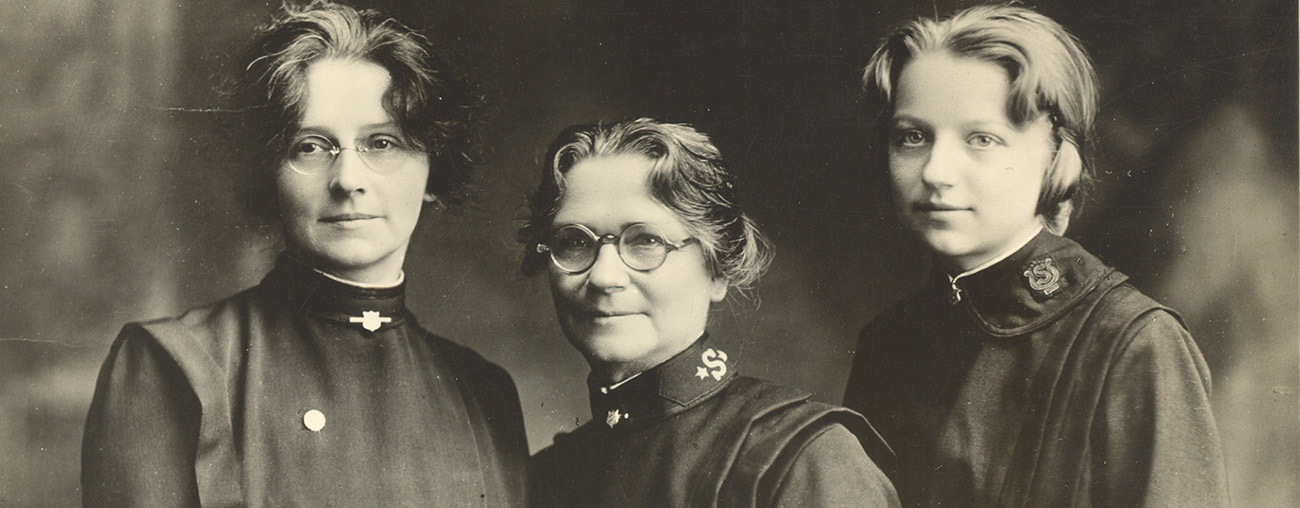
On International Women's Day, The Salvation Army remembers three powerful women who helped lead the church in service of others.
Catherine Booth
Catherine Booth, wife of Salvation Army founder William Booth, was known as the "Army Mother." In her world, women had few rights, no place in the professions and a minimal presence in church leadership.
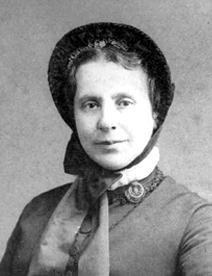 Nonetheless, in her marriage to William Booth, she became an evangelist, preacher and theologian, and co-founder of The Salvation Army.
Nonetheless, in her marriage to William Booth, she became an evangelist, preacher and theologian, and co-founder of The Salvation Army.
As a child, Catherine Booth was bright and tenacious despite long illnesses. By age 12, she had thoroughly studied the Bible from cover to cover--eight times. During her life, she became one of the most popular preachers of her era.
A prolific writer, Catherine Booth explored universal questions and provided forthright answers. She believed Christians must be passionate about their faith, that if we are indifferent we can lose the capacity for love and service. She wrote: "He doesn't ask you to go to chapel or join the church and pray...but to get down and give up your heart to Him, to choose whom you will serve, and do it at once, and everything else will follow."
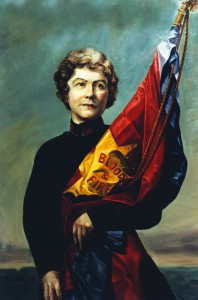 Evangeline Booth
Evangeline Booth
Eva Cory Booth, the seventh child of William and Catherine Booth, was born on Christmas day of 1865. It was the same year that her parents had responded to God's call to minister to the poverty-stricken people in the East End of London.
Although Eva was often featured as a singer or musician at her father's meetings, she had to wait until she was fifteen to wear the uniform of a sergeant and put on the Salvation Army bonnet designed by her mother. She would later influence thousands with her impassioned sermons at Great Western Hall.
Looking for a way to get closer to others in the East End, she put on a tattered dress and joined the flower girls on the steps of the fountain in Picadilly Circus. Later she would enthrall audiences in this attire as she gave her dramatic presentation billed as "Miss Booth in Rags."
In 1904 she was given command in the United States. At this time, on the advice of friends, she changed her name to Evangeline. She was an excellent athlete and played several instruments. In fact, many of her songs are sung in the Army today. Her dramatic ability was often compared to Sarah Bernhardt.
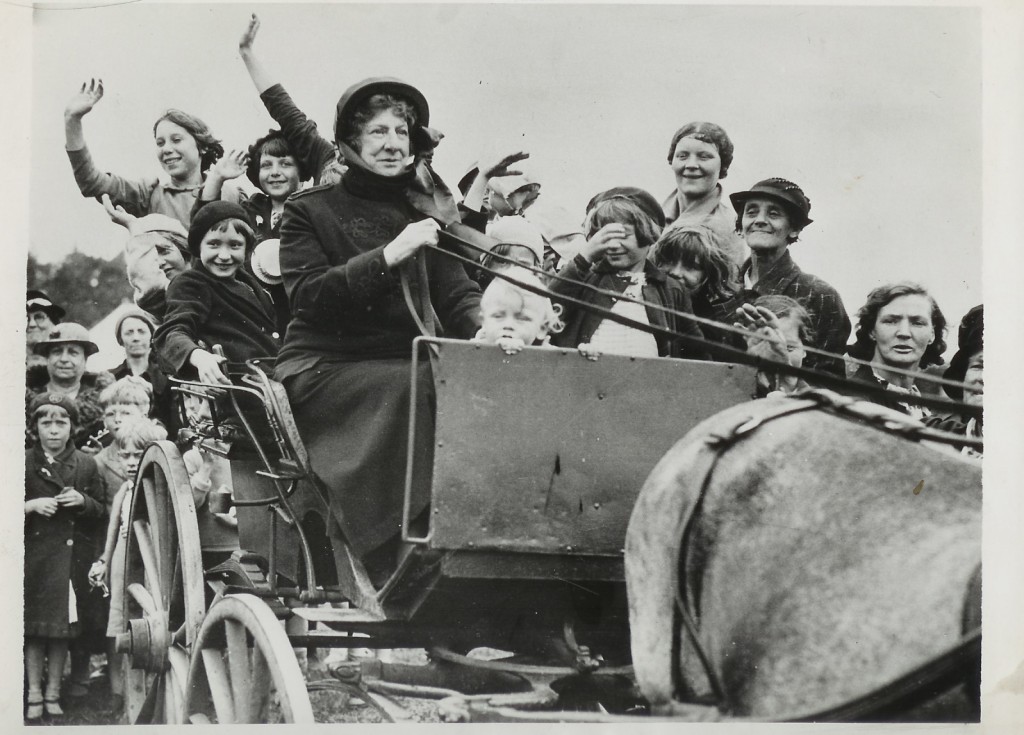
As National Commander, she was largely responsible for The Salvation Army's volunteers who served as chaplains and "Doughnut Girls" during World War I. During her 30 years as America's commander, she instituted many changes, including the division of the country into four territories.
On November 11, 1934, Evangeline became the Army's fourth general. She left America on the highest crest of love and popularity she had ever known, and retained her American citizenship.
Eliza Shirley
In the spring of 1879, the newly named Salvation Army in London was so small that all the workers knew each other personally. Eliza Shirley, then 16, joined the Christian Mission and was appointed as an evangelist at one of the "stations." At first, her parents, Amos and Annie Shirley, were not sure they approved. Shortly thereafter, Amos, an experienced silk weaver, left for America and found a position in Philadelphia.
When he sent for his wife and daughter, Eliza did not want to leave the Army behind. However, her father's description of the ungodliness he found in America convinced her that the Army was needed. She called on General Superintendent William Booth and asked permission to start the work in America.
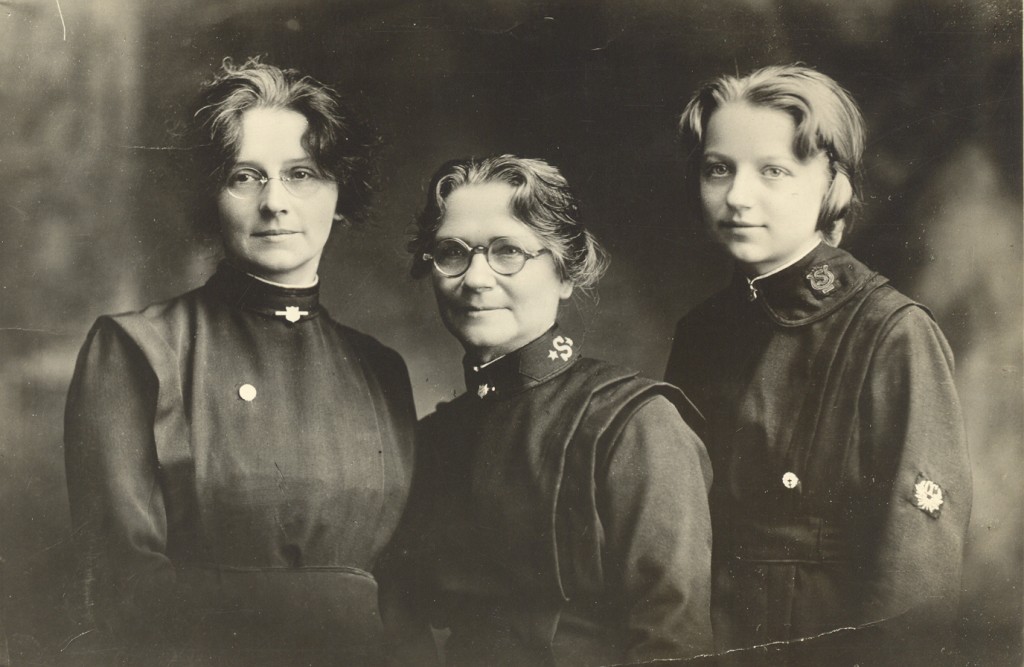
By the time they reached Philadelphia, her mother shared her desire to begin Army work. They walked the streets looking for an affordable meeting place, finally settling on an abandoned chair factory. The family worked together to clean it up and get it ready for the opening meeting. Posters announced the appearance of "Two Hallelujah Females." Though they didn't have any standard uniforms, drums, or any of the glitter that attracted crowds, people flocked out of curiosity to their open air meetings. Eventually, the police told them they couldn't gather on the street any more. They found a vacant lot several blocks away, but afterwards no one followed their march to the hall.
Providence arrived in the form of a tar barrel fire set by some boys on their lot. When the Shirleys saw the lot filled with people watching the firemen, they proceeded with a meeting. Their trophy was Reddy, the worst drunk in the area. When the people saw Reddy march to the hall, they followed to see what they would do with him. News of Reddy's conversion reached not only the local papers, but up and down the coast.
Shortly after this incident, the Shirleys opened up another hall in West Philadelphia. When Amos's employer told him he had to choose between his job and the Army, he chose the Army.
General Booth's reply to the American success was the promotion of the Shirleys to captain and the promise to send George Scott Railton to the country to take charge.
